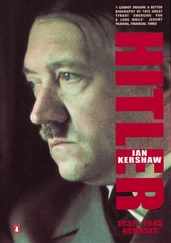Undeterred, Goebbels presided over a veritable torrent of activity in subsequent weeks, dispatching instructions to all Gauleiter in a telephone conference each midday. 72He had to contend with numerous obstacles and vested interests, which he did not always surmount. And, however drastic his interventions, there were in fact fewer slack areas of the economy able to provide extra manpower than he had anticipated, while some of his ‘rationalizations’ proved to be inefficient. In some cases, Hitler himself intervened to limit the cuts that Goebbels sought to impose. Through Bormann, he requested that the Propaganda Minister consider in each case whether the ends justified the means, if this entailed significant disturbance to public services such as postal deliveries. 73Even so, Goebbels raised nearly half a million extra men for the Wehrmacht by October, and around a million by the end of the year. 74Many were, in fact, far from fit for military service and were in any case outweighed by German losses at the front over the same period.
As a means of countering the massive Allied superiority in numbers, it is obvious that Goebbels’ total-war effort, scraping the bottom of the barrel, was doomed. But in terms of prolonging the war, and enabling Germany to fight on when beset by disaster on all fronts, the total-war mobilization that flowed from Goebbels’ new powers certainly played its part. Through his measures, the German population were more dragooned, corralled and controlled than ever. Few people were inwardly enthused for long. Most, where they could gain no exemption, had little choice but to fall in with the new demands. Dislocation, atomization and resignation usually followed. Though the appetite for the ever more desperate struggle was diminishing, there was scant room for any alternative.
Martin Bormann, head of the Party’s administration, was the third big winner from the military disasters of the summer and, especially, of the radicalization of the regime that followed the shock of the attempt on Hitler’s life. He exploited the new crisis atmosphere to reinvigorate the Party and massively expand its power and his own power and influence in the process. 75Even before the assassination attempt, he had started to sift through the Party organization to make manpower available for the Wehrmacht or the armaments industry. 76Goebbels’ total-war initiative was, therefore, both timely for him and could be used to his own advantage. Goebbels set up a relatively small coordinating staff in Berlin, but envisaged the crucial work of the total-war effort being carried out through the Party agencies at regional level. This was grist to the mill for Bormann. He could utilize the changed climate to bolster the power of the Gauleiter in the regions at the expense of the state bureaucracy.
As Reich Defence Commissars ( Reichsverteidigungskommissare , RVKs), the Gauleiter already possessed the scope to interfere in matters deemed to pertain to the defence of the Reich in their regions. This had been widened, a week before the assassination attempt, by a decree from Hitler stipulating what would prove to be unclear guidelines for collaboration of Wehrmacht and Party in military operational zones within the Reich. The decree opened the door to future interference by the RVKs in crucial issues within the operational zones such as the evacuation of the civilian population and immobilization or destruction of industry. 77Bormann was now able to extend their power substantially in what was in effect a permanent crisis subsumed under the mantle of total war, authorizing them to issue directives to the state administration in areas which had previously been beyond their remit. 78The Gauleiter, each of whom had acquired his position through readiness to use ‘elbow power’, were only too happy to comply with the invitation to throw their weight around more than ever. 79
The decentralization of power that this implies was, however, only one strand of what has been dubbed, slightly awkwardly, a policy of ‘partification’. 80While backing the Gauleiter against the state authorities, Bormann was keen to extend the control of the Party Chancellery over the regional chieftains and to hold all reins of authority in crucial policy areas in his own hands. The dominance of the Party, which was happening with his backing in the regions, also took place in central administration: increasingly the Party Chancellery pushed the Reich Chancellery, under Lammers, out of key areas of policy. Lammers’ office as head of the Reich Chancellery, once so important as the link between the Reich ministers and Hitler, now lost all significance, serving from now on as little more than a postbox and distribution agency for orders laid down by Bormann. Lammers, completely sidelined, was to see Hitler for the last time in September. 81In despair, he would from the following March be incapable of work and driven to a near nervous breakdown. 82But in the second half of 1944, there was already no central government, in any conventional sense of the term. Bormann had usurped the Reich administration, combining his control over the Party with his proximity to Hitler to create an enhanced powerhouse in Führer Headquarters.
Even so, it was, however important, not the only powerhouse. ‘Partification’ at the expense of state bureaucracy created neither a streamlined administration nor an alternative central government as the Reich started to fragment. What it did do, however, was to enhance the organizational capacity of the Party and, above all, to strengthen massively the grip of the Party over government and society. 83
The key positions in the Nazi movement of Himmler, Goebbels and Bormann enabled them to take advantage of the climate of crisis, amid the shrill cries of treachery and thirst for revenge after the Stauffenberg plot, to promote their own power. Speer, in contrast, enjoyed no position or special standing within the Party. He lacked both a populist touch, such as Goebbels instinctively had, and the organizational base of Himmler or Bormann. There was much more of the technocrat of power than Party activist about him. He had joined forces with Goebbels in the attempt to persuade Hitler to introduce radical measures for total war. But that was before Stauffenberg’s bomb had gone off. His hopes of gaining control over the entire arena of army armaments were immediately dashed when Himmler was made head of the Replacement Army. Speer even had to contend with suspicions, in the immediate aftermath of the assassination attempt, that he himself had been implicated. 84And, in the swift moves to create a Plenipotentiary for Total War, Goebbels’ populism and élan caught Hitler’s mood while Speer’s drier assessment of the needs of the armaments industry took a back seat. Bormann’s control of the Party machinery and his conscious push to widen the remit of the Gauleiter, as RVKs, also weakened Speer since his own armaments drive invariably encountered the rooted interests of the provincial Party bosses and their frequent interventions at regional level.
Moreover, once the total-war push was under way, Speer quickly found himself up against his former ally Goebbels and the new alliance that the Propaganda Minister had forged with Bormann, who could usually engineer Hitler’s backing. The obvious question of demands on the scarce manpower located by the various ‘rationalization’ measures, whether this should be allocated to the Wehrmacht or to armaments production, had been characteristically avoided during the time of the short-lived Goebbels–Speer axis. As soon as the issue of power over the total-war effort had been resolved and the question of labour allocation became acute, Speer found himself on the defensive. 85He had made powerful enemies in fighting for his own domain. Goebbels’ laconic comment on the Armaments Minister immediately after winning the battle was: ‘I think we have let this young man become somewhat too big.’ 86
Читать дальше












